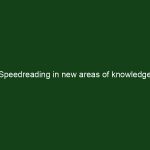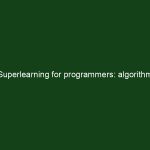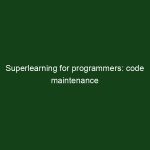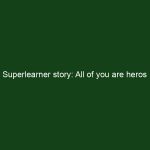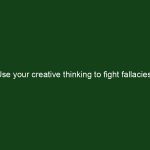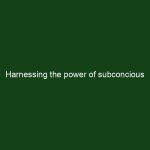Some of our readers ask for tips on becoming a more well rounded reader. For example: “I found it harder to read a article that uses words and wording I am not used to. Being unsure about the words makes it even harder when speed reading. Practicing it, should make it easier, so you won’t …
KeyToStudy Offers:
Memory, Speedreading, and Analysis
KeyToStudy Overview:
Memory, Speedreading, and Analysis
ProlificFocus Overview:
Productivity, Motivation, and Projects
ProlificFocus Offers:
Productivity, Motivation, and Projects
Superlearning for programmers: algorithm development
My first job was database administrator. My second job was an RF engineer. My third job (back in 1999) was under title “algorithm developer”, and that was the first job I really loved. Since then I have been algorithm developer/CTO on and off, dealing with computer vision, image procession, machine learning, financial mathematics, semantic processing, …
Continue reading “Superlearning for programmers: algorithm development”
Superlearning for programmers: code maintenance
There are many ways speedreading can help a programmer. The first time I wished I could speedread was back in he year 2000, when I had to maintain a code of 1mil lines. Back then I could not speedread, and eventually could not fix all the problems I made in time. The product did not …
Continue reading “Superlearning for programmers: code maintenance”
Superlearner story: All of you are heros
Being a hero is not about success, it is about not giving up when facing difficulties. Half of the people taking this Superlearner course have been diagnosed with ADHD, OCD, dyslexia, or any other tag that society uses for people that are different. The superlearner students come from more than 100 countries, talk many languages …
Mental placeholders
When reading text we often generate placeholders within the text. While regular students use a marker to highlight the text and sticky notes to find the place within the text, it can be too slow and not very elegant for a superlearner. Instead we use mental placeholders. Apparently Anna and I developed the same methods …
The power of making lists
Writing this blog is one of the hardest things I had to adhere to. When I was starting I went blank every time I needed to write a post. Very soon I started to search the course discussions for a good subject. Eventually the course went out of the good subjects. Then I took some …
Use your creative thinking to fight fallacies.
There is a huge list of logical fallacies one can make. In fact one of our memory exercises focuses on them. The full list is too long to follow… How can we use our knowledge to fight our own fallacies? First of all we need to manage our attention. This is counter-intuitive. We are not …
Continue reading “Use your creative thinking to fight fallacies.”
Build your emotional dictionary
Identifying emotions and generating markers for emotions is an interesting exercise. 1. You develop EQ/mindfulness. 2. Personal markers dictionary for emotions may be a good test: which markers come to you automatically? 3. Emotional markers tend to be more creative and personal than logical, which is a cool training for the technocrats among us. 4. …
Harnessing the power of subconcious
One of the best hacks we try to teach in our courses is harnessing the powers of unconscious. Here I outline three examples of doing this. Plus one We have discussed synaesthesia before. We train synaesthesia for making sense in complex environment. Unlike the regular definition of synaesthesia, recently I read a new interpretation: The …
Superlearner story: Leon
I have never met Leon other than over Skype. Leon (not a true name) is a web designer (kind of) that took the Udemy course starting in spring 2014. In summer Leon wrote several passionate posts and personal mails to [email protected] regarding his reading speed and fluency with markers. Then he disappeared for a couple …

